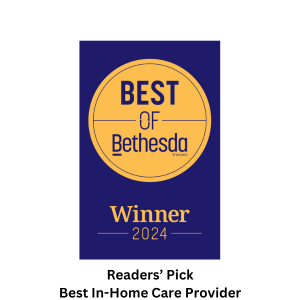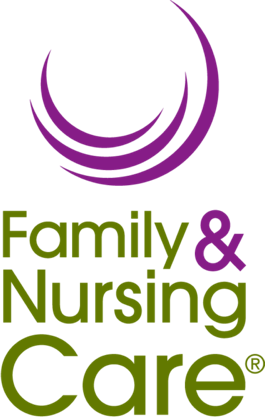
While the “most wonderful time of year” still seems far away, now is a great time to start thinking about your needs during the holiday season. Whether your plan is to host loved ones at home or to join the millions of Americans hitting the road during the holiday season, managing a care plan for yourself or a loved one shouldn’t be a source of added holiday stress. We’ve outlined several ways Family & Nursing Care can help clients ensure the smooth planning and execution of their care plan heading into the end of the year.
Planning Ahead
It can be challenging for families to find caregivers during the holidays. Kelly Ann Sharp, Director of Client Services for Family & Nursing Care, explains that “industry-wide, the holiday season is typically when demand for quality caregivers is at its highest, as many families plan to travel and gather out of town, and as winter weather events increase, so do older adults’ risk of fall-related injuries.”
As a 24/7/365-days-a-year business, Family & Nursing Care prides itself on being ready to help older adults and their families whenever a sudden home care need arises. However, it’s never too early to begin evaluating and planning for holiday care needs. To better provide high-quality support, Sharp and fellow Director of Client Services, Natalie Blickman, recommend clients reach out to their Client Services Manager as soon as holiday travel and gathering plans are solidified.
Accommodating Clients’ Unique Needs
Home care is not a one-size-fits-all approach and, during the intake process, the company’s Client Services Managers will work one-on-one with clients and their families to determine what level of care and services best suit their holiday needs.
Clients may prefer to simply request the same services they regularly use throughout the year on a specified holiday; in other cases, clients and their families needing extra support during the busy season may request one-time services outside of their typical care plan. Examples of holiday-specific care clients may request include:
- Overnight support, while a primary family caregiver is out of town
- Mobility or companionship assistance during family gatherings
- Transportation to and from gatherings outside the home
- Assistance with packing for holiday travels
- Support/assistance for seasonal traditions, such as mailing holiday cards or preparing a special recipe
- Companionship, to ensure your loved one isn’t alone during this time
“The holidays can be a special opportunity to gather, celebrate and reconnect with loved ones near and far. It’s also a time when families may feel the most time and resource-starved,” said Sharp. “Our aim at Family & Nursing Care is simple: give clients and their families peace of mind when they need it most. This promise is one we uphold year-round, with compassionate, genuine support and Caregivers who feel like family, so older adults and their loved ones can spend less time stressing and more time enjoying life’s fullest moments.”
Getting Started
To arrange home care services during the holidays, current clients and families simply need to contact their Client Services Manager, who will review clients’ unique care requests and answer any questions you may have before scheduling care.
The holidays may also be a time when older adults consider initiating first-time home care services.
“During holiday gatherings, people tend to spend more one-on-one time with older family members and may notice ways in which their loved one could benefit from additional support. Whether they’re interested in help with daily living or companionship services, our team is a resource for helping older adults access the quality care they need to maintain their independence at home,” said Blickman.
To get started, new clients may call Family & Nursing Care at 1-800-588-0517 to connect with one of the company’s Clients Services Managers. During the intake process, Client Services Managers will ask a series of demographic and lifestyle-oriented questions to help match clients with the best Caregiver for their unique needs.
To learn more about Family & Nursing Care and its holiday and 24/7/365 services, new clients can also visit the Home Care Services or Contact Us webpages.
 Our team at Family & Nursing Care is proud to kick off 2024 with the fantastic news that, for the ninth time, we have been voted “Best In-Home Care Provider” by Bethesda Magazine in the publication’s annual Best of Bethesda Readers’ poll! We’re honored to be recognized by the community for our compassionate and reliable home care services – it’s awards like this that allow our team to reach and support even more clients when they need it most.
Our team at Family & Nursing Care is proud to kick off 2024 with the fantastic news that, for the ninth time, we have been voted “Best In-Home Care Provider” by Bethesda Magazine in the publication’s annual Best of Bethesda Readers’ poll! We’re honored to be recognized by the community for our compassionate and reliable home care services – it’s awards like this that allow our team to reach and support even more clients when they need it most.









